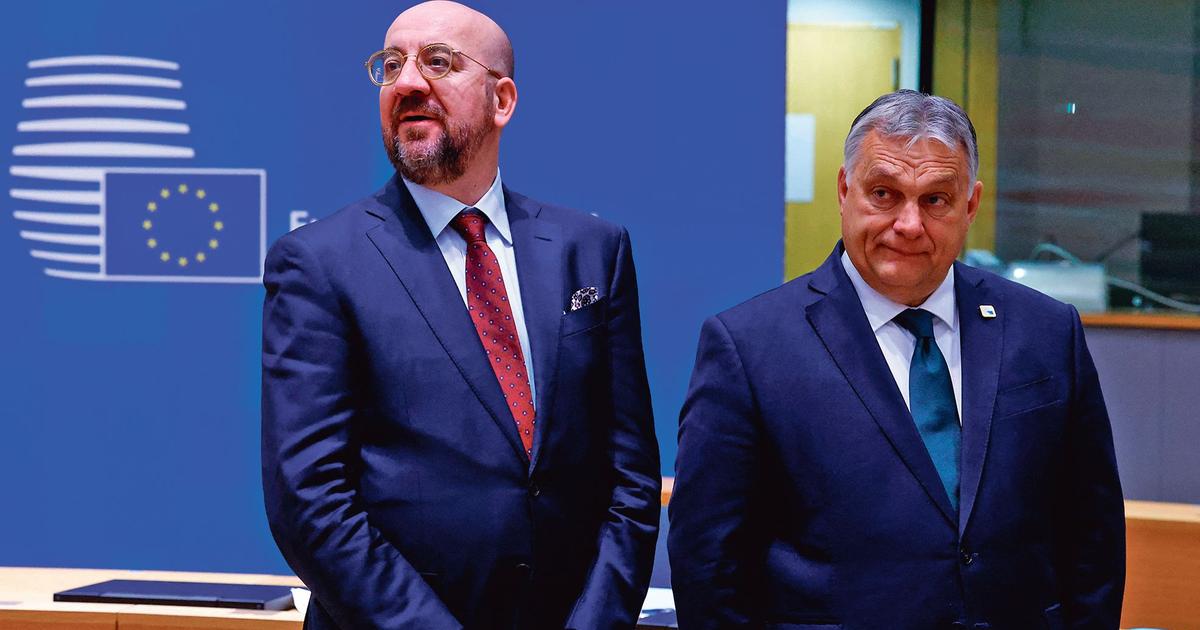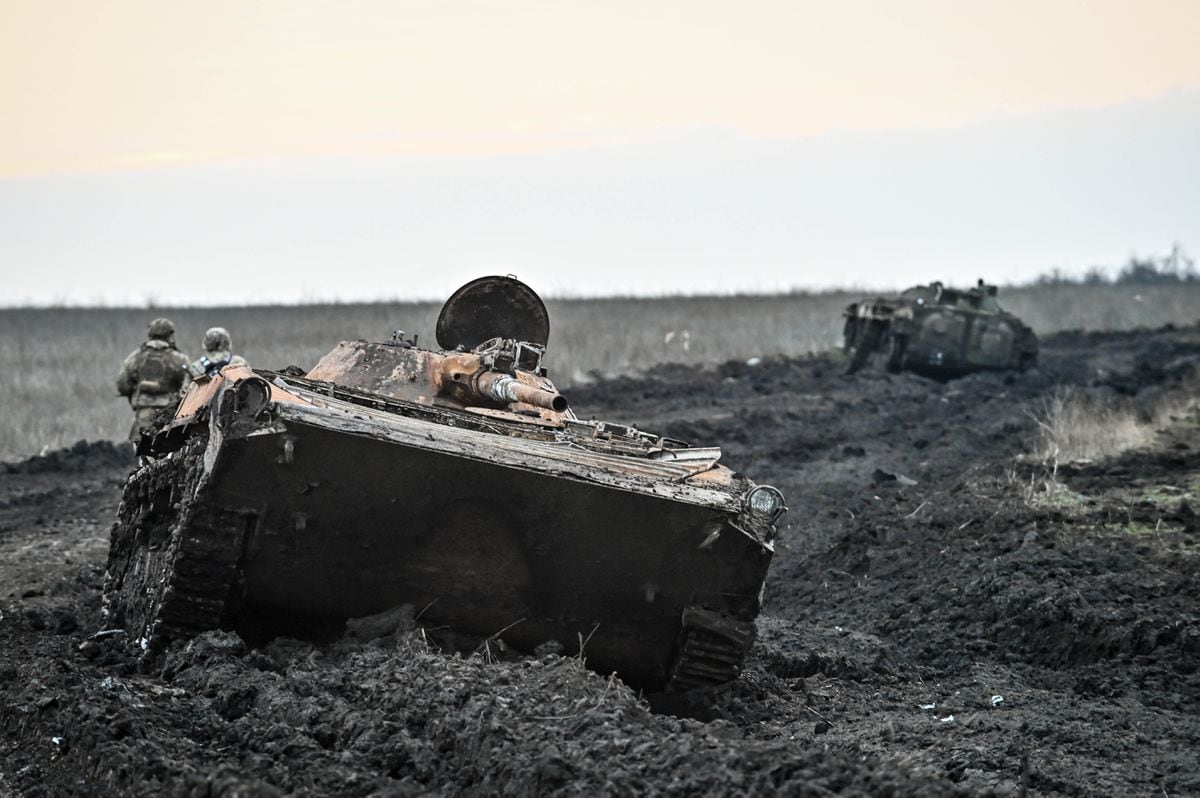From our correspondent in Brussels
To discover
Follow information on the war in Ukraine with the Figaro application
Nothing went as planned.
At least, until the end of the afternoon.
When they arrive at the Council, Thursday morning, to participate in the last summit of a year 2022 which has seen the return of war in Europe, the Twenty-Seven can only see the extent of the damage.
Journalists assail them with questions about "Qatargate", this corruption scandal which casts doubt on Europe and offers Eurosceptics an unexpected angle of attack a year and a half before the European elections of 2024
.
Present Wednesday evening in Doha to support the Blues, Emmanuel Macron is forced to justify himself.
“I totally assume,
he reacts.
I was, four years ago, behind the France team when it was in Russia, and I am behind them in Qatar”
, he adds.
Files linked to the consequences of the war in Ukraine are piling up, without the Member States managing to reach an agreement.
“There is fatigue.
Each subject is infinitely complex and commits the EU,”
summarizes a diplomat.
This is particularly the case with the gas price cap, which has become an endless soap opera.
There is also, among other problems, the free-rider of the American ally with its massive plan of subsidies granted to local companies producing electric cars and solar panels.
» OUR FILE -
War in Ukraine: all our articles to understand
The Europeans are not aligned on how to fight back.
Some - France and Italy in particular - plead for a new joint loan, under penalty of seeing European industry drop out.
The so-called frugal countries - including Germany - do not want to hear about it, considering that there is still a lot of money to be used within the framework of the recovery plan.
But there is much more boring still, this Thursday morning, for this Union which has promised
"unwavering"
support to Kiev.
While the leaders must, at the end of the meeting, renew their support, two emblematic files are slipping dangerously: the ninth package of sanctions against Russia and, above all, the macro-financial aid of 18 billion euros promised to the Ukraine for 2023.
"We must be able to show that we are united," said
the President of the European Council, Charles Michel, before entering the room.
At the start of the meeting, President Zelensky stressed, in a video message broadcast to the Twenty-Seven, that
"the fight for peace in Ukraine and throughout Europe"
must not be held hostage by
"misunderstandings and controversies between some EU Member States".
Arm wrestling and complex editing
The Europeans thought, however, that they had overcome the difficulties over aid to Ukraine.
After a long standoff and a complex assembly, Hungary finally agreed on Monday evening to lift its veto.
To twist the arm of Budapest, which refused both to agree on aid to Ukraine and on the minimum global taxation of multinationals, the Europeans had imagined an overall package.
If Hungary maintained its veto, then the Europeans would not give the green light to the Hungarian recovery plan accompanied by 5.8 billion euros.
And without this green light before December 31, Hungary would automatically lose 70% of the sums promised.
The case had finally been settled.
It was without counting on Poland, who took it into their heads to block the package.
Upon his arrival at the summit, the Polish Prime Minister was clear on the subject.
In his eyes, it is neither more nor less than a
“blackmail”
of the Europeans.
The blackmail could also come from Poland.
By using this lever and while no one can suspect this country of wanting to default on Ukraine, Warsaw is also pushing for the release of the first funds from the recovery plan, which are long overdue, but also to toughen the ninth package of sanctions. that some Member States have tried to water down.
In short, the Europeans were facing a mikado on Thursday.
Finally, at the end of the afternoon, Poland agreed to lift its veto.
“She was stuck because the package was made in such a way that they blocked the 18 billion euros and, moreover, the Hungarian recovery plan.
They have tried their hand at hostage taking in recent months and now know the experience of the watered sprinkler,”
analyzes a diplomat.
Discussions must, however, continue on the ninth package of sanctions.
Several countries - notably France and Germany - are calling for exemptions on fertilizer exports, considering that this increases the risk of famine in Africa.
Poland and the Baltics believe that these exemptions would amount to giving a gift to certain oligarchs.
A meeting of ambassadors was to meet on Thursday evening to try to unravel all these threads.














